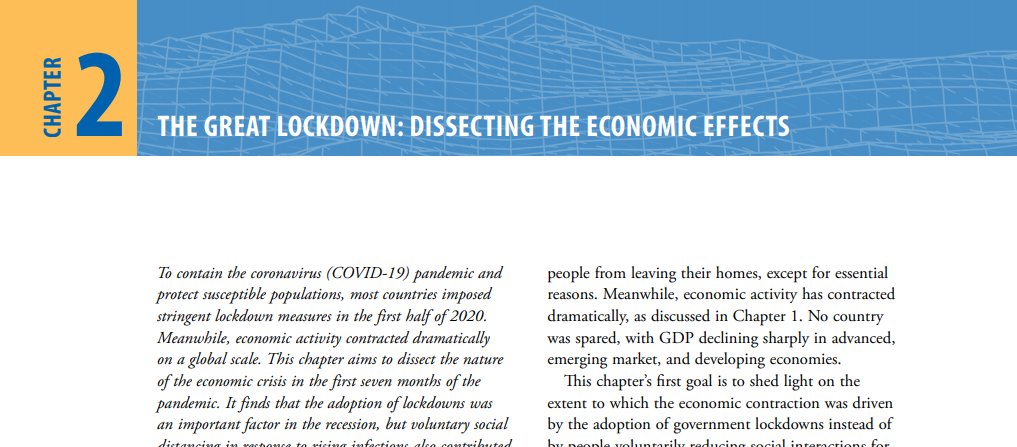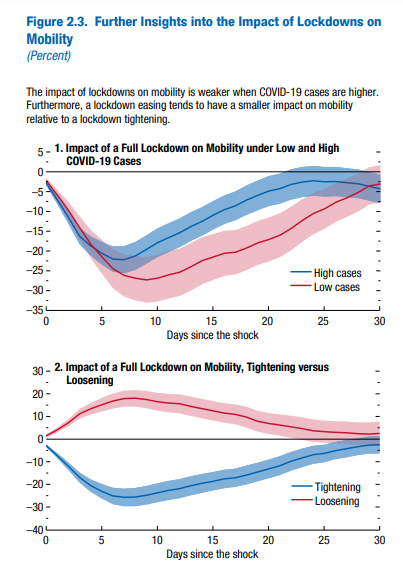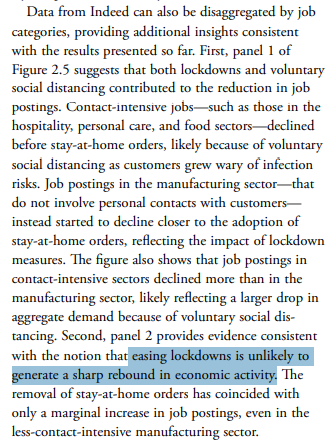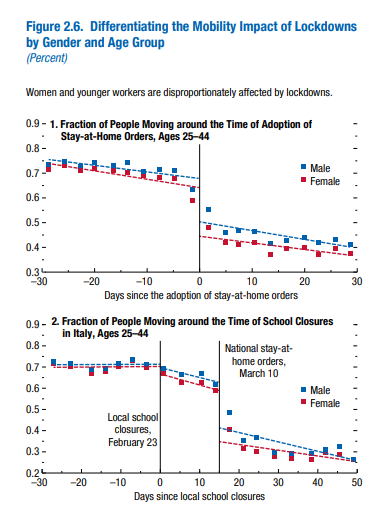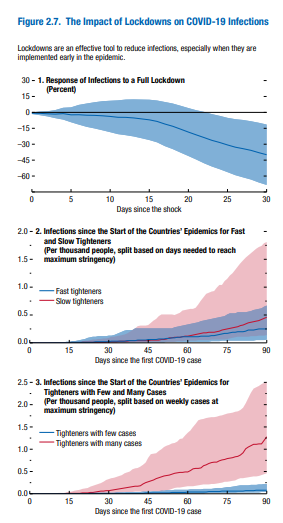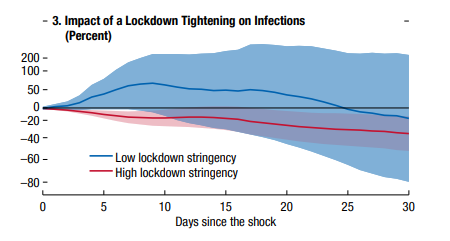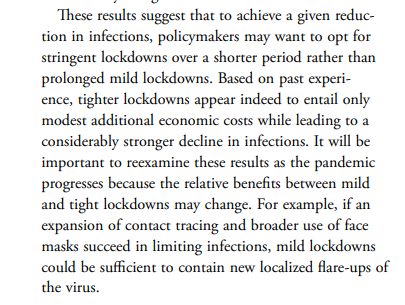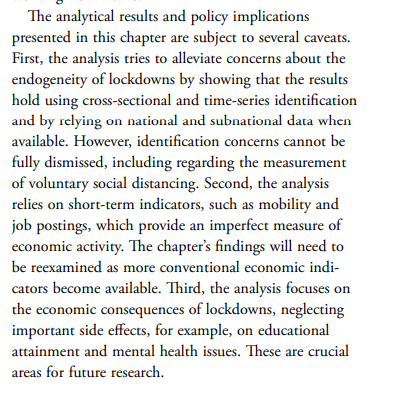Have lockdowns been bad for the economy?
A new report from the International Monetary Fund has a very interesting answer to the question 1/n
A new report from the International Monetary Fund has a very interesting answer to the question 1/n
2/n The report is here, and well worth reading. At the outset I should say that ALL OF THIS EVIDENCE IS UNCERTAIN
The IMF is great, and has tried very hard to be accurate, but it is important to take care when reading these findings https://www.imf.org/en/Publications/WEO/Issues/2020/09/30/world-economic-outlook-october-2020">https://www.imf.org/en/Public...
The IMF is great, and has tried very hard to be accurate, but it is important to take care when reading these findings https://www.imf.org/en/Publications/WEO/Issues/2020/09/30/world-economic-outlook-october-2020">https://www.imf.org/en/Public...
3/n The basic summation is simple:
- lockdowns probably cause economic harm
- large outbreaks of COVID-19 also cause harm
- it is hard to disentangle this complexity
- there are almost certainly situations in which lockdowns are beneficial to the economy
- lockdowns probably cause economic harm
- large outbreaks of COVID-19 also cause harm
- it is hard to disentangle this complexity
- there are almost certainly situations in which lockdowns are beneficial to the economy
4/n On the first point, it is quite clear that lockdowns are associated with greater economic decline. Countries with harsher lockdowns saw worse financial outcomes
5/n BUT, as the IMF notes, lockdowns were not the only issue!
When cases rose very quickly, people VOLUNTARILY reduced their mobility to similar levels as when governments took action
When cases rose very quickly, people VOLUNTARILY reduced their mobility to similar levels as when governments took action
6/n The IMF modelling suggests that lockdowns were associated with a short-lived drop of ~25% in mobility
However, for every doubling of daily COVID-19 cases, there was an associated LONG-lived drop of ~2.5%
However, for every doubling of daily COVID-19 cases, there was an associated LONG-lived drop of ~2.5%
7/n In fact, the IMF estimates that in advanced economies this VOLUNTARY restriction had the biggest impact on mobility (and thus the economy) NOT lockdowns
8/n This leads to an interesting point, which is that if people feel like they are still at risk from COVID-19, the impact of relaxing restrictions economically is very low, but the impact on new cases is quite high
So, relaxing lockdowns early may be DETRIMENTAL economically
So, relaxing lockdowns early may be DETRIMENTAL economically
9/n Depressingly, this also means that there is no easy answer here - despite what the contrarians have been saying, it& #39;s unlikely that simply lifting all restrictions will lead to immediate economic recovery
10/n Also depressingly, the IMF found strong evidence that the negative impact of lockdowns was felt disproportionately, with women and younger people bearing the brunt of the downturn
11/n There are also some very important implications here for public policy in terms of HOW lockdowns and other measures are introduced
For example, while all lockdowns carry economic harms, some may not confer public health benefits!
For example, while all lockdowns carry economic harms, some may not confer public health benefits!
12/n While locking down was usually associated with a reduction in COVID-19 cases, the IMF found that in places where there were already many cases the impact was much lower
13/n Moreoever, lockdown STRINGENCY and LENGTH was important. Protracted mild lockdowns were associated with long tail ends of economic harm, but a much smaller reduction in cases
14/n On the other hand, short sharp lockdowns tended to substantially reduce cases with less economic damage (because fewer cases means a faster recovery), leading to this recommendation
15/n And important to note that this work is subject to very substantial limitations, and it is really quite hard to disentangle the relationships here
16/n To sum up:
- lockdowns cause harms
- so does COVID-19
- in some situations, a lockdown may be economically beneficial
- if lockdowns are pursued, short tight ones may be better than long loose ones
- more research is needed to discern precisely which policies are best
- lockdowns cause harms
- so does COVID-19
- in some situations, a lockdown may be economically beneficial
- if lockdowns are pursued, short tight ones may be better than long loose ones
- more research is needed to discern precisely which policies are best
17/n It& #39;s also worth noting, as the IMF does, that other public health policies play an important role that is hard to capture in this analysis. Places with really good testing and contact tracing may avoid many of these issues entirely
28/n Alternatively, as was the case where I live, a short sharp lockdown to improve testing/tracing capacity may be a very good option long-term

 Read on Twitter
Read on Twitter